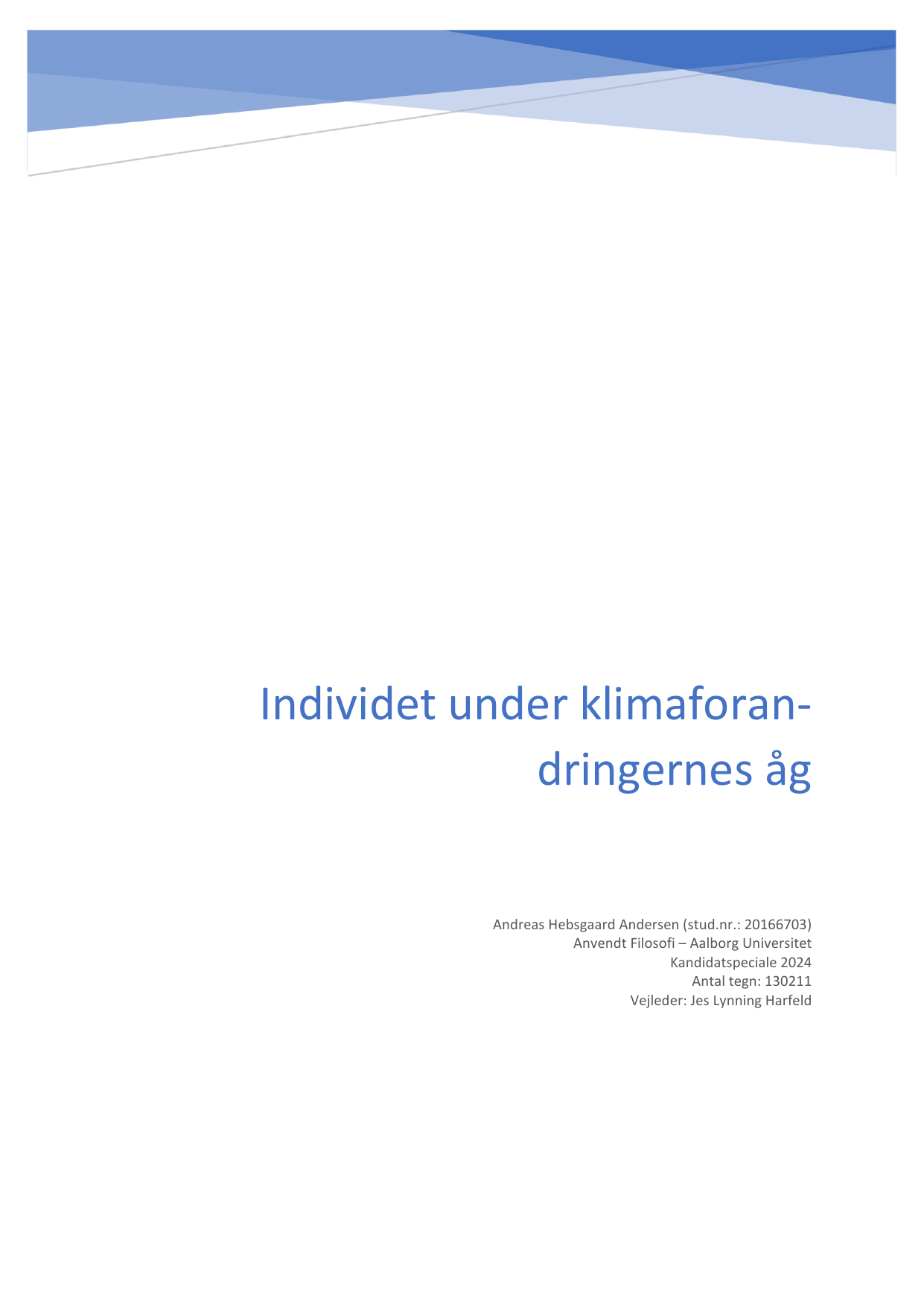
Individet under klimaforandringernes åg
Oversat titel
The individual under the yoke of climate change
Forfatter
Semester
4. semester
Uddannelse
Udgivelsesår
2024
Afleveret
2024-05-30
Antal sider
54
Abstract
This paper examines the question of how the individual should relate to its own climate gas emitting actions. The question concerning climate change is not whether it is real, but how it should be mitigated. This can be asked in multiple ways, but here it is asked from the point of view of the individual and its own climate gas emitting actions, and whether the individual should limit such. To initiate the investigation, two positions were presented and analyzed, which differentiated between political and private actions. To understand the positions the terms ethics and moral was defined, where moral refers to the ontological condition that to act is inherently ambivalent, due to unforeseen consequences and hidden values and intentions, and ethics as a theorical attempt to escape the ambivalence and give clear answers to what is right and wrong. Through an analysis of K.E. Løgstrups theory, it is shown that due to the interdependency between human beings, individuals always have a minimum of power over each other, where this ontological condition for the individual presents itself as an ethical demand to always take care of others as best as possible. The question then was if the action of emitting climate gases was part of such a demand, where the analysis showed that, even though the consequences of climate change can be very abstract, emitting climate gases nevertheless contributes to climate change which will result in suffering for others. The demand shows up when there is interdependency, which there is, wherefore the individual should limit their emissions of climate gases. One of the initial positions that is presented focuses on the duty to engage in political actions to mitigate climate change, and not on a duty to refrain from climate gas emitting actions. The problem with this position is that it overlooks the fact that the ethical demand to use the power each individual has over each other as best as possible is primary to both duties and politics. Both politics and duties are stand-ins for when the individual fails to live up to the ethical demand. Politics and duties are ways to force the individual to do what it is already supposed to do. Further the question of freedom is discussed. Here it shows that with the concepts of negative and positive freedom, there are two ways for the individual to limit its climate gas emitting actions. Positive freedom is described as the freedom for the individual to be the master of themselves. In this sense the individual has the opportunity to limit its own climate gas emission by being master of themselves and responding to the ethical demand. Negative freedom describes the freedom an induvial has without being limited by others. To limit this amount of freedom would be the political solution, where the opportunity to emitting climate gases would be limited through political intervention. Such a political limitation of freedom is justified due to the amount of damage contributing to climate change will have for others. But whether or not such a political intervention is invoked, the individual should do what it already can do to limit its climate gas emitting actions.
